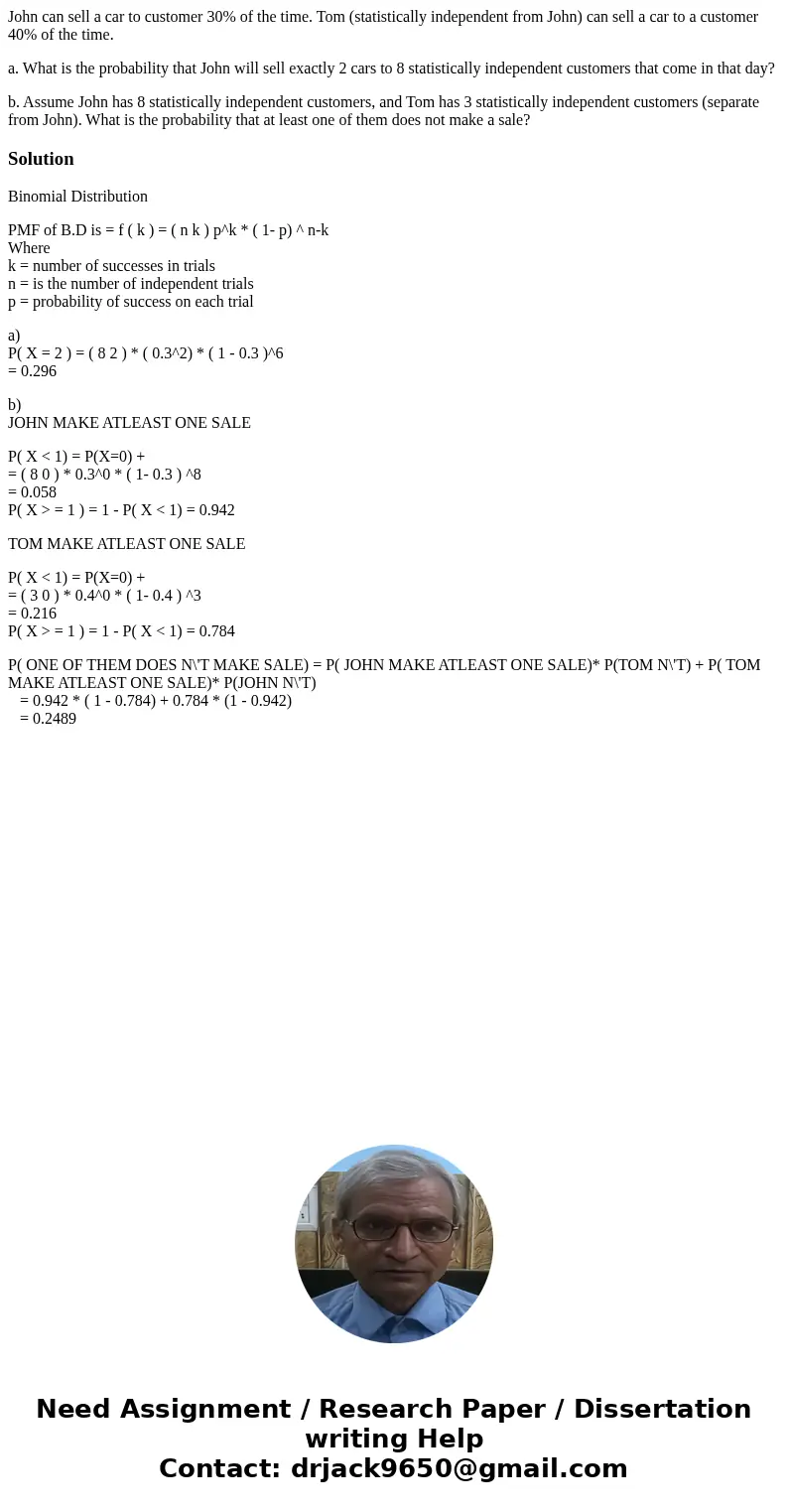John can sell a car to customer 30 of the time Tom statistic
John can sell a car to customer 30% of the time. Tom (statistically independent from John) can sell a car to a customer 40% of the time.
a. What is the probability that John will sell exactly 2 cars to 8 statistically independent customers that come in that day?
b. Assume John has 8 statistically independent customers, and Tom has 3 statistically independent customers (separate from John). What is the probability that at least one of them does not make a sale?
Solution
Binomial Distribution
PMF of B.D is = f ( k ) = ( n k ) p^k * ( 1- p) ^ n-k
Where
k = number of successes in trials
n = is the number of independent trials
p = probability of success on each trial
a)
P( X = 2 ) = ( 8 2 ) * ( 0.3^2) * ( 1 - 0.3 )^6
= 0.296
b)
JOHN MAKE ATLEAST ONE SALE
P( X < 1) = P(X=0) +
= ( 8 0 ) * 0.3^0 * ( 1- 0.3 ) ^8
= 0.058
P( X > = 1 ) = 1 - P( X < 1) = 0.942
TOM MAKE ATLEAST ONE SALE
P( X < 1) = P(X=0) +
= ( 3 0 ) * 0.4^0 * ( 1- 0.4 ) ^3
= 0.216
P( X > = 1 ) = 1 - P( X < 1) = 0.784
P( ONE OF THEM DOES N\'T MAKE SALE) = P( JOHN MAKE ATLEAST ONE SALE)* P(TOM N\'T) + P( TOM MAKE ATLEAST ONE SALE)* P(JOHN N\'T)
= 0.942 * ( 1 - 0.784) + 0.784 * (1 - 0.942)
= 0.2489

 Homework Sourse
Homework Sourse